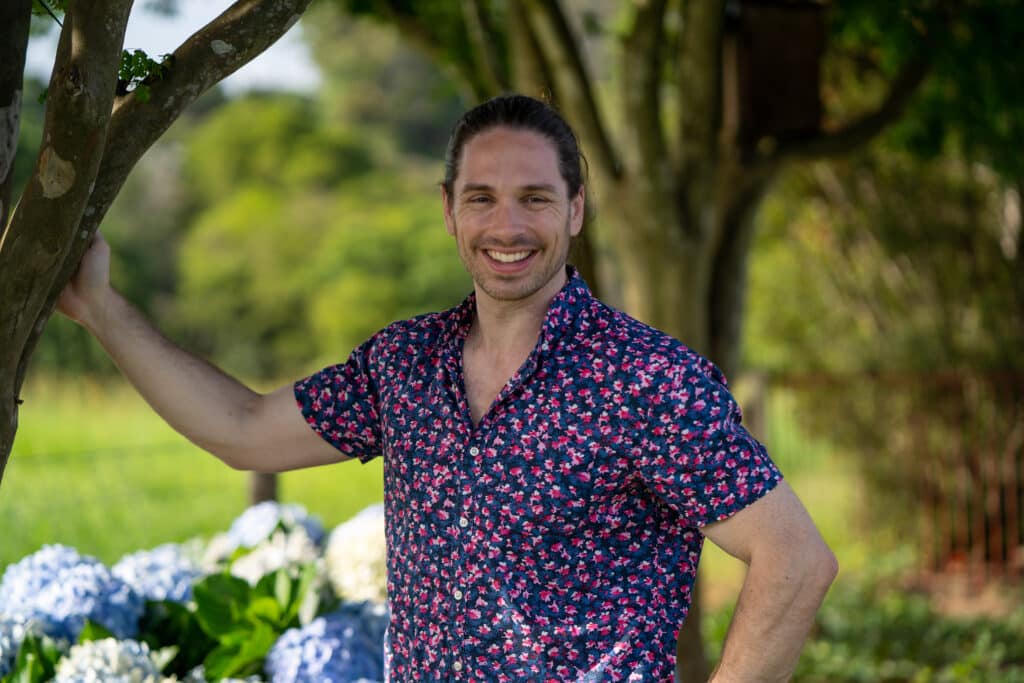You deserve to receive love.
This may have been one of the most challenging (but most important) take-aways from a group call I did with some of my coaching clients this week.
It was tough because many women come into the program not believing it. Or, they believe they have to do something to earn love—perform, be perfect. Something of that nature.
Over the course of 4 weeks, they began to absorb a new reality: I am worthy of love. Just as I am. No need to accomplish anything or be anything I’m not.
Seeing the state change as each woman took this in and absorbed it was pretty radical!
We took it a step further in an unexpected direction.
We started noticing that many of the notions central to Buddhism make for a more loving, vulnerable flow of giving and receiving with other people.
For example, loving-kindness and compassion are at the heart of Buddhism. It’s second-nature to many of the women I work with to give care and kindness to others, but they’ve never really given it to themselves. Believe it or not, sending love and compassion to yourself is an important relationship skill; we’re better able to give to others when we have something to give from!
If you’re keen to have a little more ease and energy in your love life, you might like some other key Buddhist teachings that instruct us how to relate better to others and ourselves.
#1 Accept impermanence
 Some relationships will not last. We know this, but it doesn’t make endings easier to bear. It can be helpful to recognize that some relationships are in our lives for the learnings we can gain so that we can grow.
Some relationships will not last. We know this, but it doesn’t make endings easier to bear. It can be helpful to recognize that some relationships are in our lives for the learnings we can gain so that we can grow.
When you try to hold on too tightly, clinging to things that have run their course, you often end up not being present in the moment that is. You squelch the uninhibited flow between you and your partner and end up driving away the one you want.
Loss will always be a part of love – whether it’s the kind of loss that happens because of a breakup or the kind that happens at death. It sounds awful to say, but instinctively we know it’s true.
If you’re struggling to enjoy dating or to get into new relationships because you have energy residue hanging on from the past, you may need to make peace with what’s done and gone.
The opportunity here is to ask: Where have I not healed? Where have I not forgiven? Where have I not grieved? Resolve the past so you can have more peace of mind and mental/emotional bandwidth to form new connections. Then watch how the present just unfolds magically!
Resolve the past so you can have more peace of mind and mental/emotional bandwidth to form new connections.
#2 Release expectations
No, that doesn’t mean you should forget all about your deal-breakers or throw your values out the window, nor does it mean boundaries aren’t important.
The task here is to release any expectation (conscious or not) that the person in front of you be exactly what you want – that they can meet all your needs. Release any expectation that they see the world the way you see it or feel the way you feel. Release the need to be right. By doing so, you can see things as they are, be grateful for what is, and make healthy decisions about whether it is something you want to keep in your life.

#3 Give up obsessing
When we encounter problems, we often try to think our way out of it. But overthinking steals joy and presence.
Fixating on problems keeps you on a hamster wheel that literally sucks up all of your mental and emotional reserves, leaving you with little to give to friends, to romance, or to yourself. This thought-habit implies (wrongly) to your brain that everything must be resolved immediately, and mental discomfort cannot be tolerated.
It also tells your brain (wrongly) that you can control everything. You can’t. This whole process actually clutters up your mind and makes things cloudier, so give your overtaxed mind a rest and stop chronically processing problems in your mind. Ruminating on the past prevents you from being in the moment that’s right in front of you.
#4 Practice loving-kindness
 Dating and being in relationships can be triggering. You’ll quickly realize when you “hit your edges.” Your partner says or does something that annoys or offends you and you react. Or (equally possible) they fail to do something you wished them to do and you feel abandoned, misunderstood, or rejected.
Dating and being in relationships can be triggering. You’ll quickly realize when you “hit your edges.” Your partner says or does something that annoys or offends you and you react. Or (equally possible) they fail to do something you wished them to do and you feel abandoned, misunderstood, or rejected.
Showing loving kindness to yourself means you honor and forgive your mistakes and imperfections – including feeling angry, sad, anxious, or irrational in these “hitting the edges” moments. It means you accept and embrace the parts of yourself you’d put in the shadow.
Showing loving kindness for your partner means you do the same for them.
#5 Have present moment awareness

Also called mindfulness, present moment awareness happens when you notice the ego and its fear response – as in the type of moment described above. It also happens when you choose: I’m going to meet new people from a place of spirit, instead of ego. No more putting on a mask and trying to impress someone!
Can you imagine how empowering that would feel?
Mindfulness also means you stick out the discomfort that inevitably occurs. No more running away; no more hiding from yourself. Facing what is and leaning into it so you can extract the lesson. Plus, having presence has the added benefit of being really confident and sexy!
#6 Seek your partner in healing
 No one can live up to the fantasy most of us have in our minds of what a perfect partner would be like. Do you want to have to live up to the ideal image in someone else’s head?
No one can live up to the fantasy most of us have in our minds of what a perfect partner would be like. Do you want to have to live up to the ideal image in someone else’s head?
Instead of looking for the guy who hits every line of the checklist, start searching for the partner who accepts you as you are and is committed to mutual learning and growth with you. The partner who’s in it to grow will be more flexible and forgiving.
If your goal is to be a conscious couple, it’s about melting into a shared heart and protecting it with a “couple bubble.” The relationship is bigger and more sacred than either of you as individuals.
You might be thinking, “This all sounds lovely Mark, I can practically feel the rainbows and lotus petals, but I cannot show up to a first date waving incense and saying, ’Would you like to be one with me?’”
No. But you can apply these concepts in a way that clearly and consistently demonstrates This is who I am… This is what I want… And this is what I have to give…
What would it be like to approach dating with this new level of awareness and acceptance – for ourselves and for the people we’re meeting? What would it be like to bring that awareness and acceptance to long-term relationships?
When you seek to understand other people, they can feel your intention. And when you date with more self-love and self-acceptance, you can naturally extend that love and acceptance to others. It’s a win-win!
Don’t forget, I have a Facebook group you can join.






